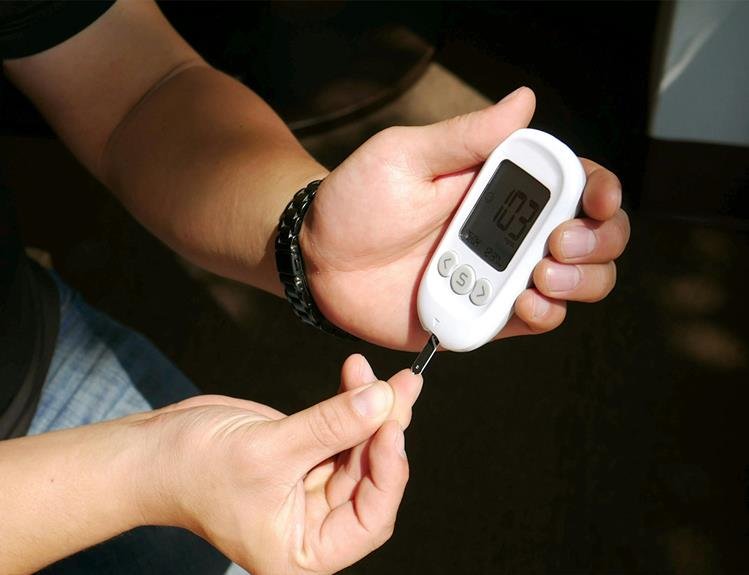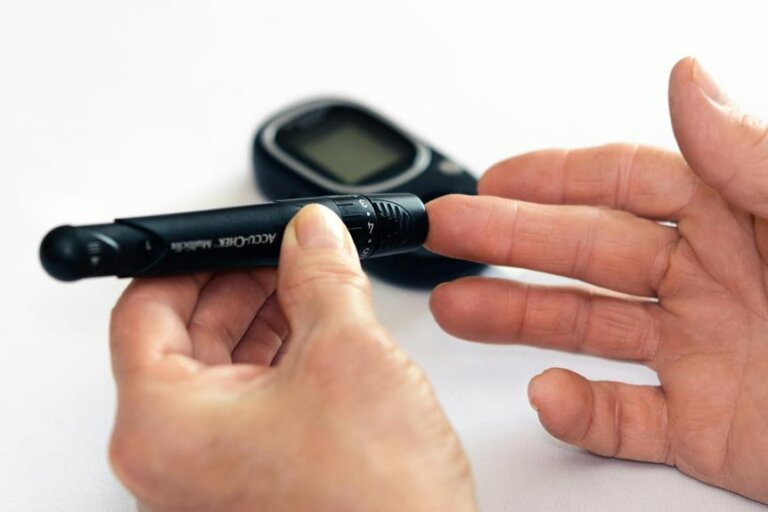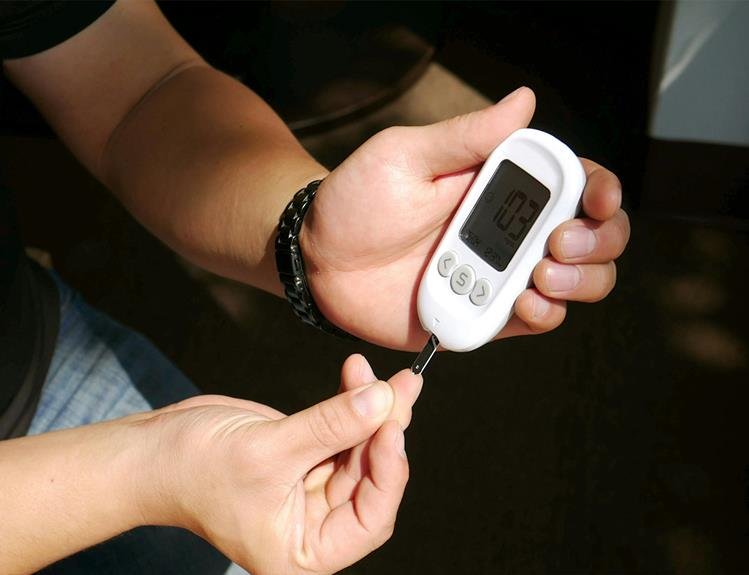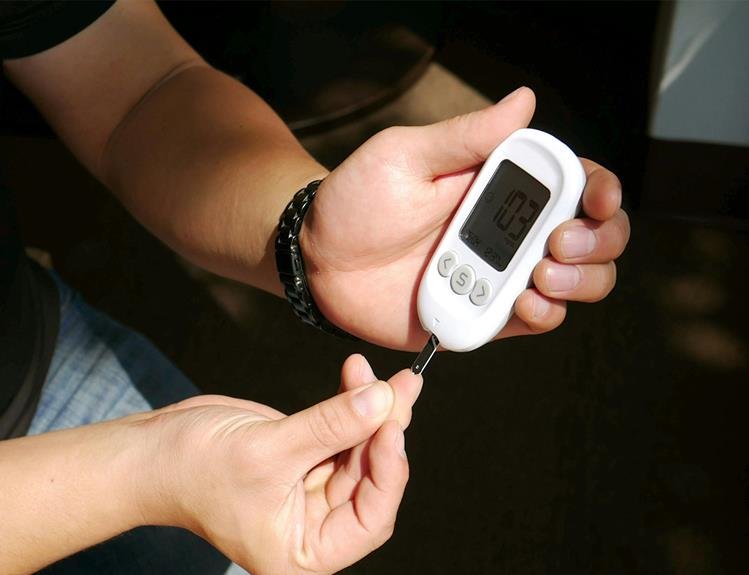The Emotional Impact of Diabetes-Related Amputation: Coping Strategies
Imagine navigating through a stormy sea of emotions after experiencing diabetes-related amputation. The journey can be tumultuous, filled with waves of grief, loss, and challenges to your sense of self.
However, amidst these turbulent waters, there are strategies that can serve as a beacon of hope, guiding you towards calmer shores. By exploring coping mechanisms and resilience-building techniques, you can learn to navigate this emotional terrain and find a path towards healing and acceptance.
Emotional Rollercoaster
Experiencing a diabetes-related amputation can send your emotions on a turbulent rollercoaster ride. Initially, shock and disbelief may overwhelm you as you come to terms with the sudden change in your body. You might feel a sense of loss, not just physically but also emotionally, as you navigate this new reality. Anger and frustration could arise, directed towards yourself, the condition, or even healthcare providers. These emotions are valid and part of the adjustment process.
As time progresses, you may find moments of acceptance and hope. Seeking support from loved ones, healthcare professionals, or support groups can provide a sense of comfort and understanding. However, there may still be waves of sadness or anxiety as you adapt to life post-amputation. It's essential to acknowledge these feelings rather than suppress them.
Grief and Loss
Navigating through the emotional rollercoaster of a diabetes-related amputation can lead to a profound sense of grief and loss as you grapple with the significant changes to your body and life. The loss of a limb can trigger a range of emotions, from sadness and anger to profound feelings of emptiness. Grieving for the lost part of your body is a natural response as you come to terms with the physical and emotional adjustments required.
Dealing with the aftermath of an amputation involves mourning not only the physical loss but also the impact it has on your daily life. Activities that were once routine may now seem daunting, and feelings of helplessness and frustration can arise. It's important to acknowledge these emotions and seek support from loved ones or mental health professionals to navigate through this challenging period.
While grief and loss are normal reactions, it's essential to remember that healing is possible. Through self-compassion, resilience, and a willingness to adapt, you can gradually find acceptance and rebuild a sense of purpose and identity beyond the amputation.
Body Image Challenges
Dealing with body image challenges after a diabetes-related amputation can be a significant aspect of adjusting to life post-surgery. The physical changes resulting from amputation can greatly impact how you perceive yourself, leading to feelings of self-consciousness, inadequacy, or even shame. Adjusting to a new body image may take time and effort, but it's essential to remember that your worth isn't defined by your physical appearance.
One coping strategy is to focus on what your body can still achieve rather than what it has lost. Engaging in activities that bring you joy and a sense of accomplishment can help shift your focus away from negative body image thoughts. Seeking support from friends, family, or a therapist can also be beneficial in processing these emotions and building self-acceptance.
Additionally, exploring adaptive clothing options that are both comfortable and stylish can enhance your confidence and help you feel good about your appearance. Remember, it's normal to experience body image challenges after an amputation, but with time and self-care, you can learn to embrace your new self-image.
Impact on Relationships
The emotional toll of diabetes-related amputation on relationships can be profound, impacting both the individual and their loved ones. Adjusting to life post-amputation can strain intimate relationships as roles and responsibilities shift. Partners may struggle with feelings of guilt, helplessness, or anxiety about the future. Communication becomes crucial during this time, as open dialogue can help address fears and concerns.
Family dynamics may also undergo changes, with the amputee possibly feeling like a burden or experiencing a sense of isolation. Loved ones may grapple with how best to provide support while maintaining boundaries. Children may have difficulty understanding the changes and require reassurance and explanations tailored to their age.
Friends and social circles may also be affected, with some relationships evolving due to the amputation. Some individuals may withdraw, feeling self-conscious or fearing rejection, while others may find their social networks rallying around them. Nurturing relationships, seeking support, and educating those close to you about your needs can help navigate these emotional challenges together.
Anxiety and Depression
Adjusting to life post-amputation due to diabetes can significantly impact your mental health, leading to heightened levels of anxiety and depression. The loss of a limb can trigger a range of emotions, including fear, sadness, and uncertainty about the future. Anxiety often arises from worries about managing daily tasks, potential complications, or changes in self-image. It's common to feel overwhelmed by the challenges of adapting to a new way of life and coping with the physical and emotional aftermath of the amputation.
Depression may also manifest as feelings of hopelessness, worthlessness, or a loss of interest in previously enjoyed activities. Coping with the reality of limb loss can be emotionally draining, and it's essential to seek support from healthcare professionals, mental health providers, or support groups. Engaging in therapy, practicing relaxation techniques, or participating in activities that bring joy and fulfillment can help alleviate symptoms of anxiety and depression. Remember, it's okay to seek help and prioritize your mental well-being as you navigate this challenging period of adjustment.
Overcoming Isolation
You can start overcoming isolation by building a support network that understands your struggles. Seek counseling services to help you navigate the emotional challenges that come with amputation.
Engaging in activities that bring you joy and fulfillment can also help combat feelings of loneliness.
Building Support Networks
Feeling isolated after a diabetes-related amputation can be eased by reaching out and connecting with supportive individuals. Building a strong support network is crucial during this challenging time.
Friends, family, support groups, or online communities can provide understanding, empathy, and practical advice. Sharing your feelings and experiences with others who've gone through similar situations can reduce feelings of loneliness and helplessness. Engaging in conversations, whether in person or virtually, allows you to express your emotions and receive encouragement.
Seeking Counseling Services
To overcome feelings of isolation after a diabetes-related amputation, consider seeking counseling services for support and guidance. Counseling can provide a safe space to express your emotions, fears, and concerns with a trained professional who can offer coping strategies tailored to your needs.
Talking to a counselor can help you process the emotional impact of the amputation, develop a positive outlook on life, and learn effective ways to manage stress and anxiety. Additionally, counseling can assist in rebuilding self-esteem and confidence, fostering resilience in the face of adversity.
Engaging in Activities
Consider exploring new hobbies and activities as a way to break free from isolation and reconnect with the world after a diabetes-related amputation. Engaging in activities can help you rediscover joy and purpose. Look for community groups or online forums focused on your interests.
Joining a support group for individuals who've gone through similar experiences can also provide a sense of belonging. Physical activities like adaptive sports or yoga tailored for amputees can boost your confidence and physical well-being.
Volunteering for causes you care about can create meaningful connections and a sense of fulfillment. By actively participating in activities, you can combat feelings of loneliness, find a new sense of community, and rebuild your life with purpose.
Building Resilience
Building resilience in the face of diabetes-related amputation requires a proactive approach to mental and emotional well-being. Accepting and adapting to the changes can be challenging, but it's essential to focus on building coping strategies that work for you. One way to enhance resilience is by seeking support from friends, family, or a therapist. Talking about your feelings and experiences can help process emotions and provide a different perspective on the situation.
Engaging in mindfulness practices such as meditation or deep breathing exercises can also contribute to building resilience. These techniques can help manage stress and anxiety, allowing you to approach difficulties with a calmer mindset. Setting realistic goals and celebrating small victories along the way can boost your confidence and motivation.
Additionally, staying informed about diabetes management and staying connected with healthcare providers can help you feel more empowered and in control of your health. Remember, building resilience is a journey, and it's okay to seek help when needed. By taking proactive steps to prioritize your mental and emotional well-being, you can navigate the challenges of diabetes-related amputation with greater strength and resilience.
Frequently Asked Questions
How Do Cultural Beliefs and Practices Influence Coping Strategies for Individuals Dealing With Diabetes-Related Amputation?
You cope with diabetes-related amputation by drawing on your cultural beliefs and practices. These influences shape your strategies for managing emotional challenges. Seek support from your community and traditional healing methods to navigate this difficult journey.
What Impact Does Financial Strain Have on the Emotional Well-Being of Individuals Facing Amputation Due to Diabetes?
When money woes rain down on your stormy emotions after diabetes leads to amputation, the weight can crush your spirit. Financial strain can darken the path to healing, but seek support beams.
Are There Specific Coping Strategies That Are More Effective for Individuals Who Have Had Multiple Amputations Due to Diabetes Complications?
When dealing with multiple amputations due to diabetes complications, focus on building a support system, seek counseling, engage in physical therapy, explore adaptive technologies, and cultivate resilience through positive thinking. Your mental health matters as you navigate this journey.
How Does the Emotional Impact of Diabetes-Related Amputation Differ Between Individuals Who Were Diagnosed With Diabetes at a Young Age Versus Later in Life?
Experiencing diabetes-related amputation may vary emotionally based on age at diagnosis. Coping strategies differ between those diagnosed young and later in life. Seek support, engage in therapy, and stay connected with loved ones to navigate these emotional challenges effectively.
What Role Do Healthcare Providers Play in Supporting the Emotional Well-Being of Individuals Facing Diabetes-Related Amputation?
You should know healthcare providers play a crucial role in supporting your emotional well-being during diabetes-related amputation. They can offer counseling, connect you with support groups, and provide resources to help you cope with the challenges ahead.
Conclusion
In conclusion, navigating the emotional impact of diabetes-related amputation can be a challenging journey. However, by embracing coping strategies, you can conquer the rollercoaster of emotions, overcome grief and loss, tackle body image challenges, maintain relationships, combat anxiety and depression, break free from isolation, and build resilience.
Remember, with perseverance and support, you can rise above the hardships and thrive in the face of adversity.






